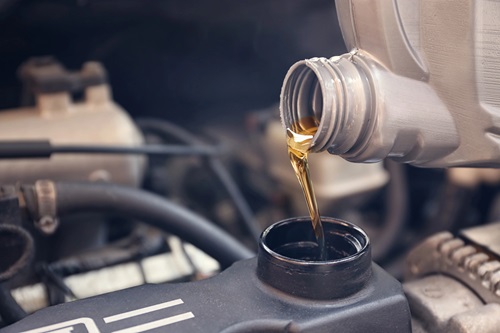
Maintaining your car’s health is crucial for its longevity and performance. One of the most overlooked aspects of auto maintenance is the choice of engine oil. In this blog, we will explore why selecting the correct oil grade matters and how the wrong oil can harm your vehicle.
Auto Maintenance: What are Oil Grades?
Oil grades are a crucial aspect of auto maintenance in Knoxville TN, often represented by numbers like 5W-30, 10W-40, or 0W-20. These numbers aren’t arbitrary; rather, they reflect the oil’s viscosity, which is a measure of the oil’s thickness and its ability to flow under different temperature conditions.
Understanding these numbers and what they signify is essential. Choosing the wrong oil grade can have significant consequences for your engine’s performance. Consequently, the right oil grade ensures that your engine is protected under both cold start and high-temperature conditions. It contributes to the longevity and efficiency of your vehicle.
Auto Maintenance: Why Viscosity Matters
Viscosity is more than just a technical term. It’s a key factor in how well your engine runs. In particular, the viscosity of motor oil determines its ability to create a protective film over engine components, reducing friction and preventing wear. When oil is too thick (high viscosity), it struggles to flow through the engine, particularly in cold conditions. This can lead to increased friction, causing your engine to work harder, consume more fuel, and wear out faster. In extreme cases, thick oil can cause engine components to seize up due to inadequate lubrication.
On the other hand, if the oil is too thin (low viscosity), it may flow too easily. It will fail to maintain a strong protective layer on engine parts. This can result in insufficient lubrication, leading to increased wear, overheating, and potentially severe engine damage. Thin oil might also break down faster under high temperatures, losing its ability to protect the engine over time.
Choosing the correct oil grade ensures that the oil’s viscosity is optimal for your vehicle’s engine. It provides the right balance of flow and protection across a wide range of temperatures. With the help of an auto repair shop in Knoxville TN in choosing the right oil grade, you can ensure smoother engine operation, better fuel efficiency, and prolonged engine life.
Auto Maintenance: The Risks of Using the Wrong Oil Grade
Using the incorrect oil grade in your engine isn’t just a minor mistake—it can lead to serious consequences that affect your car’s performance, longevity, and even your wallet. Here’s a closer look at the specific risks:
Engine Wear and Tear
One of the most immediate risks of using the wrong oil grade is accelerated engine wear and tear. Motor oil is designed to lubricate the intricate moving parts of your engine, reducing friction and preventing heat buildup. However, if the oil is too thick, especially during cold starts, it may not flow quickly enough to reach critical engine components. This delayed lubrication can lead to increased friction, causing parts to wear down prematurely. Over time, this wear and tear can escalate, leading to overheating, reduced engine efficiency, and ultimately, engine failure. Even a small discrepancy in oil grade can significantly impact how well your engine is protected.

auto maintenance in Knoxville TN
Reduced Fuel Efficiency
Fuel efficiency is a key concern for most drivers, and the oil you use plays a direct role in how efficiently your engine runs. Thicker oils create more resistance within the engine, known as drag. It forces the engine to work harder to maintain the same level of performance. As a result, this increased effort translates into higher fuel consumption, meaning you’ll need to fill up your tank more frequently.
Potential Engine Damage
Modern engines are engineered with specific oil grades in mind to ensure optimal performance and protection. Consequently, deviating from the recommended oil grade can lead to serious engine damage. Additionally, using an incompatible oil grade might void your vehicle’s warranty, leaving you responsible for expensive fixes.
Impact on Emissions
Your car’s oil doesn’t just affect engine performance—it also plays a role in emissions. The wrong oil grade can lead to incomplete combustion within the engine, where fuel doesn’t burn as efficiently as it should. This can increase the level of harmful emissions your car produces, contributing to environmental pollution. Moreover, higher emissions can cause your vehicle to fail mandatory emissions tests, leading to fines or the inability to renew your vehicle registration until the issue is resolved.
Auto Maintenance: Choosing the Right Oil Grade
Consult Your Owner’s Manual
Your vehicle’s owner’s manual is the best source of information for the recommended oil grade. It provides the manufacturer’s specifications for the best oil based on your engine’s design and performance requirements.
Consider Your Driving Conditions
Your driving habits and the local climate in Knoxville TN can also influence the best oil grade for your vehicle. For instance, if you frequently drive in extreme temperatures or under heavy loads, you may need an oil with a different viscosity rating to ensure optimal engine protection.
Trust Miller Brothers Transmission Auto Repair and Body Shop for all your auto maintenance needs, including expert oil changes and more. They are dedicated to helping you make informed decisions that keep your vehicle running smoothly and efficiently.
Call Miller Brothers Transmission Auto Repair and Body Shop today to schedule your next service appointment and experience the difference expert auto maintenance can make for your car.
Like our Facebook page for more information about auto services.
Miller Brothers Transmission Auto Repair and Body Shop
7123 Tazewell Pike
Corryton, TN 37721
(865) 689-5072
https://www.millerbrosautorepair.com/
Serving Knoxville, TN and Knox County
Service areas include: All of Knox County, Corryton, Fountain City, Halls Crossroads, Powell and Knoxville

No comments:
Post a Comment